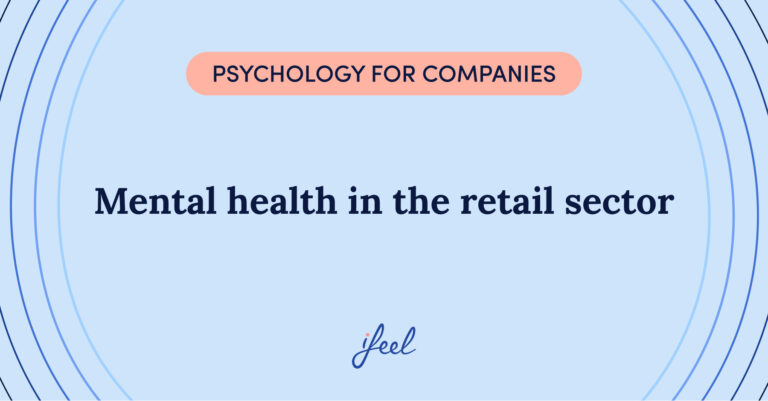As leaders, it is essential to recognise that fostering a culture of well-being at work is not just a compassionate act but a strategic business move. A culture of well-being at work directly correlates with enhanced productivity, improved employee satisfaction, and increased organisational success. Understanding and implementing strategies to nurture this culture will enable leaders to transform their workplaces into thriving ecosystems where employees are motivated, healthy, and engaged.
How do you prioritise and implement strategies that foster a culture of well-being at work within your organisation?
Understanding the importance of workplace well-Being
Creating a culture of well-being at work involves ensuring employees’ overall happiness and health. This comprehensive approach includes physical health and mental, emotional, social, intellectual, and financial wellness. By establishing such a culture, leaders can significantly enhance employee engagement and drive organisational success.
The International Labour Organisation, for example, links wellness to all aspects of working life, including the quality and safety of the workplace, how employees feel, and the company culture. Its goal is to keep workers safe, healthy, and engaged.

According to the 2021 HR Sentiment Survey by Future Workplace, 68% of HR managers have identified employee wellness and mental health as their top priorities. Moreover, as per the Hot Topics in Retirement and Financial Well-being report, 88% of employers say they currently have or are designing a financial well-being strategy.
Key areas of focus in a culture of well-being at work
To build a sustainable culture of well-being at work, leaders should consider these key areas:
| Aspect of well-being | Importance | Example initiatives |
|---|---|---|
| Physical health | Reduces healthcare costs, improves energy | Gym memberships, fitness classes |
| Mental health | Improves focus, reduces burnout | Employee Assistance Programs (EAPs), mental health days |
| Financial wellness | Reduces stress, improves job satisfaction | Financial planning workshops |
| Social connections | Enhances teamwork, fosters a sense of belonging | Team-building activities, social events |
By investing in these areas, leaders can cultivate a holistic culture of well-being at work.
“Our partnership with ifeel has catalysed a positive shift in discussing mental well-being at SCOR. Since implementing ifeel’s solution, we’ve seen an increase in open conversations about mental health within our organization. ”
– Sabrina Kruse, Head of HR EMEA & Group Head of Diversity, Inclusion and Engagement at SCOR, an ifeel partner company.
Addressing workplace stressors in a culture of well-being at work
Recognising and addressing workplace stressors is critical for leaders aiming to foster a culture of well-being at work. Common stressors include heavy workloads, tight deadlines, poor work-life balance, and lack of recognition. Addressing these issues can prevent negative impacts on employee morale and productivity.
Effective stress reduction strategies include:
- Conducting surveys and feedback sessions: Regularly gather employee input to identify stressors.
- Implementing flexible work arrangements: Promote work-life balance by allowing flexible schedules.
- Developing recognition programs: Regularly acknowledge and reward employee contributions to enhance morale and motivation.
These strategies can help leaders maintain a supportive environment that reduces stress and enhances a culture of well-being at work.
Leadership Lens 🔎
As a leader, your role in fostering a culture of well-being at work is crucial. Begin by setting a positive example through healthy work habits and by prioritising your own well-being, which can inspire similar behaviours among your team. Actively listen to your employees, showing genuine interest in their concerns, and ensure their feedback is acted upon. It’s important to allocate resources thoughtfully, investing in programmes that genuinely support employees’ health and well-being. Moreover, clearly communicate the organisation’s vision for a culture of well-being at work and illustrate how it aligns with broader business goals. This approach not only empowers your workforce but also drives enhanced organisational success.
ifeel’s mental well-being trends report
Explore the latest trends in workplace mental well-being with ifeel’s Mental Well-being Trends Report. This comprehensive report reveals that prevention is the cornerstone of effective mental health strategies in the workplace. With stress, anxiety, and burnout on the rise, fostering a supportive environment can increase productivity by up to 12%, according to the Mental Health Foundation. However, 57% of employees seek help only after suffering for over a year, highlighting the critical need for early intervention.
Ready to make mental well-being a priority in your company? Download the full report now and discover actionable insights to transform your team’s productivity and health.

Unlocking teams’ potential
Building a culture around well-being at work is not an easy undertaking. It is a long-term goal that requires commitment from both employers and employees. Implementing the strategies and initiatives discussed in this article is an excellent first step.
To support companies in this process, our team of expert workplace well-being psychologists has created a mental well-being solution for businesses that improves talent retention, reduces presenteeism, and combats employee stress.
With our mental well-being solution, your company’s HR managers can receive personalised, data-driven advice on improving mental health at work. In addition, this solution offers employees a 360° mental well-being service structured at different levels according to their needs. Try our solution now to see how it could help you.
We hope you found this article about developing a culture of well-being at work interesting. If you would like more information about our mental well-being solution for companies, simply request it, and we will contact your team as soon as possible.











